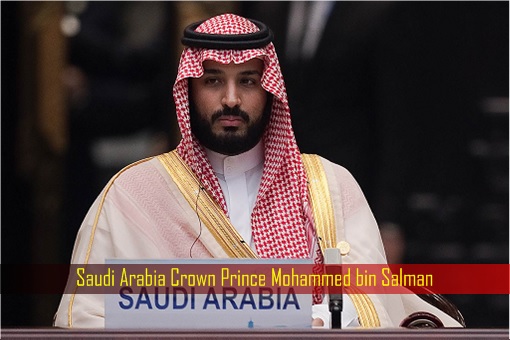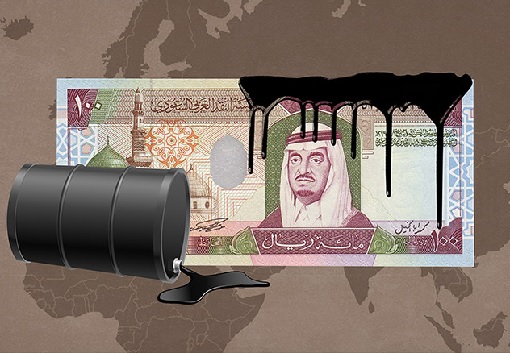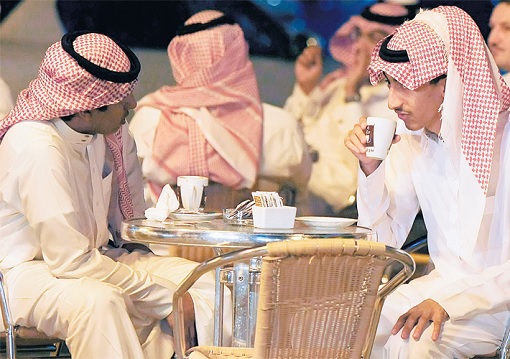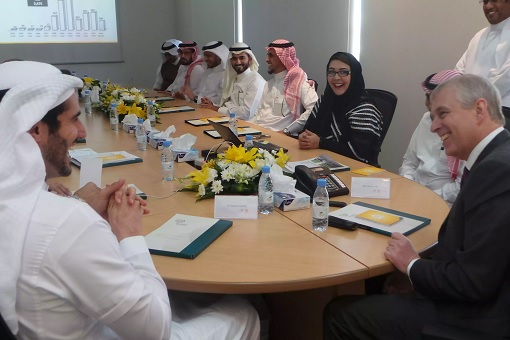Reform is something very alien to Saudi Arabia. After all, until June 2018, this kingdom is still the only country in the world that does not allow its women to drive. But Crown Prince Mohammed bin Salman, a 32-year-old son of King Salman, has promised that the Kingdom of Saudi Arabia will reform. The young prince was also said to be instrumental in pushing for freedom to Saudi women drivers.
To convince that Saudi is absolutely serious about reforms, the Saudi prince had even admitted the embarrassing fact of the monarchy – the fact that it was the incompetency of the House of Saud which has allowed the birth of extremism in the kingdom, and thereafter spread to the rest of the 1.5-billion Sunni Muslims around the world.
Prince Mohammed said – “What happened in the last 30 years is not Saudi Arabia. What happened in the region in the last 30 years is not the Middle East. After the Iranian revolution in 1979, people wanted to copy this model in different countries, one of them is Saudi Arabia. We didn’t know how to deal with it. And the problem spread all over the world. Now is the time to get rid of it.”

Apparently, the prince wanted to make a U-turn back to “moderate” Islam. He said – “We are simply reverting to what we followed – a moderate Islam opens to the world and all religions. 70% of the Saudis are younger than 30, honestly we won’t waste 30 years of our life combating extremist thoughts, we will destroy them now and immediately.”
Given a choice, of course, the Saudi prince would not want to reform, let alone admits that his royal family was responsible for making the kingdom the centre of extremism which subsequently gives birth to terrorism. He promotes reforms because his country is facing its worst economy growth since the world recession in 2008-09 and is crazily burning foreign exchange reserves to survive.
There are actually “execution risks” surrounding the huge reforms. If not executed properly and cleverly, such reforms could backfire as the entrenched conservative base might inflame local extremists, who are in abundance, to overthrow the monarchy. The “Saudi Vision 2030” and all the reforms were mooted since last year, when the crude oil prices were stubbornly low.

Now that the crude has skyrocketed to US$60 a barrel, just 10 bucks away from Saudi’s much needed breakeven, the House of Saud might make a U-turn, or at least drags its feet from the risky reforms. The IMF (International Monetary Fund) reveals that in order to achieve zero deficits in 2017, Saudi’s breakeven oil price is US$73.10.
Obviously, Saudi, having spooked by low oil price, cut its breakeven oil price by the most between 2016 and 2017. Still, thanks to lavish spending, the country’s breakeven oil price isn’t the lowest in the Middle East even though it is the biggest oil producer. Kuwait commands the lowest breakeven price in the region at US$46.50, followed closely by Qatar at US$46.80.
While the global growth will be 3.6% for the fiscal year of 2017, regions such the Middle East, North Africa, Afghanistan and Pakistan will register only 2.6%. According to Jihad Azour, the IMF Director for Middle East and Central Asia, the region is facing the challenge of providing enough jobs for 25-million young men and women expected to enter job market in the next 5 years.

However, to provide the 25-million jobs, the region needs to grow between 6-7%. Saudi has no other choice but to explore and expand private sector-led economy. Therefore, sectors required reforms including financial, education and business environment. Only then foreign investors would find it attractive to enter the country and provide jobs.
Foreign investors will definitely think twice about investing in Saudi if women executives are prohibited from taking the wheels. And they certainly don’t appreciate conducting business in an environment where wining and dining are restricted to Islamic law. More importantly, the foreign investors cannot stomach extremism and sexism in the local job market.
A key challenge remains that if the oil price goes up, then the appetite for reform will go down instead. That’s because with higher oil price, the pressure to reform dissipates as complacency kicks in within the Government of Saudi Arabia. Decision-makers will find excuses not to reform as the easy and lazy way out – don’t rock the boat.

They would argue that since the oil price has so-called recovered, the government could provide employment to the young job seekers, the same old way they have been doing. So, there isn’t incentive to seriously implement the reforms such as Prince Mohammed’s “Vision 2030”. Those who had worked with the Arabs would know how complacent they can be.
Hence, don’t count the chicken before it hatches. The crude oil has now entered a phase where there’s a premium price being factored in due to speculation. The reforms screamed by the Saudi Crown Prince Mohammed bin Salman are indeed sexy and mind-boggling. But he knew the risk and the price that comes with such reforms. He might abandon his plans entirely if the oil price continues go up the roof.
Other Articles That May Interest You …
- Saudi Prince Finally Admits Extremism, Promises A U-Turn Back To “Moderate” Islam
- Johor Sultan Mocks & Declares War On Najib’s “Brainless” Islamic Department
- Finally, Saudi Women Can Drive – Only Because They’re Needed To Boost Economy
- Arab VS Arab – The Hidden Reasons Why Saudi & Its Gang “Unfriend” Qatar
- Karma Is A Bitch! – Desperate Saudi Whines & Begs U.S. Not To Pump So Much Oil
- Sponsor & Supplier – Majority Of ISIS Militants Are Citizens Of Saudi
- Exposing 9/11 Secrets – How Saudi Terrorism Began In 1979’s “The Siege Of Mecca”
- The Glory Days Are Over – OPEC Warlord Saudi Has Started Borrowing

|
|
November 2nd, 2017 by financetwitter
|


|

|

|

|

|

|




























Comments
Add your comment now.
Leave a Reply